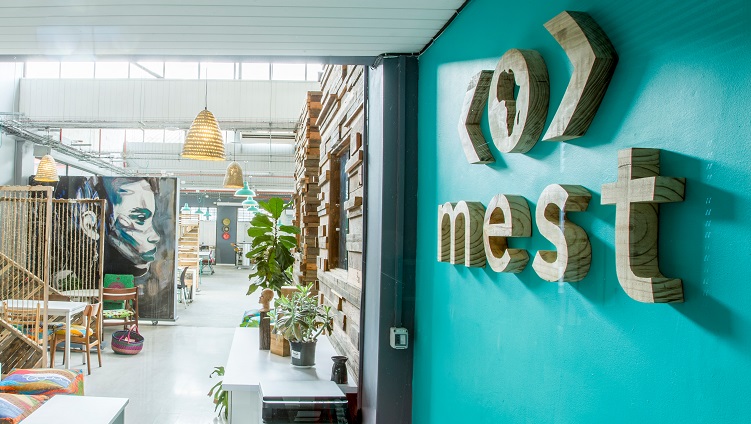The Avenue Conference Centre based in Waterfront hosted the third MEST Africa Summit for two consecutive days. The summit assembled innovative startups making real change, large companies and thought leaders. The second day of the summit had the last discussion by panelists before the startup pitch competition. The panelists discussed accelerators, incubators and the relationships between corporate and startup.
The panel comprised of co-founder and CEO of AfricArena and Methys, Christophe Viarnaud; head of the Merck Accelerator, Munya Chivasa; LetiArts’ CEO Eyram Tawia; CEO and founder of NexInnova, Otema Yirenkyi; CTO of 4Africa Academy at Microsoft, Ryno Rijnsburger; and Associate at Covington, Priscilla Fasoro. MEST’s MD Aaron Fu had the privilege of moderating the panel.
Startups need to collaborate with corporates to succeed in their businesses and record a rapid growth. Startups need to be creative and dynamic innovators carrying out their businesses changing the world and being important in the cognitive tool. Globally, accelerators and incubators like MEST have come up to help startups get a meaningful partnership and relationship with investors, sponsors, and corporates. Christophe Viarnaud said that there is still lack of effective platforms linking startups and corporates and investors in Africa. That is the main reason why AfricArena was launched in 2017.
Startupbootcamp Africa’s CIO and co-founder Zachariah George said that programs such as Startupbootcamp Africa are an essential tool in the journey to innovation. He added that it was meant to offer access to the market for entrepreneurs that are above idea stage. It was also meant to facilitate an introduction to a number of the corporates that the program works with. Munya Chivasa said that Merck Accelerator has around 20,000 scientists working to solve daily challenges. However just like Merck accelerator also see the importance of working with startups. He added that the body carries out science in a fantastic model, but the tech side can at times be challenging. According to Chivasa, there is a great connection to be developed with various startups in the field of tech. The main aim to start the accelerator program was to come up with businesses. They only need right partners at the cutting edge more, so startups to get a breakthrough.
Otema Yirenkyi agreed with Chivasa. He said that partnering with startups gives one a vision of the innovation edge. He added that startup helps one proof him/herself for the future. The main reason why corporates and startups can have a symbolic relationship is mainly that of the old-age nature of corporate tools. It is also because of the way startups see themselves globally. Startups work in different ways compared to corporates, and the difference is the determinant of the mutually beneficial working relationship. According to Ryno Rijinsburger, startups can have a level of focus to a given challenge. That is more difficult in the corporate world. According to him the size of the luggage to carry around, the number of meetings to attend and the number of legislation that is there depends on the size of the organization. Therefore the more significant the organization, the bigger the demands and that weighs one down. He added that corporates are in a position to develop a successful innovation team. However, they need to be in a position and will afford those teams. All these issues are attainable but not to all corporates. According to Ryno, not all corporates are in a position to acknowledge the importance of the focus level. This is the reason as to why they go to startups that can afford the level of laser focus.
Viarnaud said that his thought is that we are in the era where centralized organizations are fading off. He added that innovation is vital and one cannot succeed if all of their resources cannot produce great innovation. According to Varnaud, firms are going to work as teams and innovators are going to work together in future. The success of corporates lies in their ability to integrate the innovation method. He added that corporates that need great innovation should incorporate startups and challenging boundaries and sourcing for the next partner is essential. He added that there are numerous evolution and a lot of such opportunities in Africa. African corporates are not in apposition to innovate without startups.
According to Viarnaud, a lot of failures have been recorded. There are many struggles at this time when he is linking startups with corporates. There is a struggle in the size of the IT infrastructure of large companies in dealing with the modern tech of startups. This takes for a lot of time for the two to integrate. The company will work in case it is working with open innovation team if they are given time. But in case a corporate is using a startup, it will not work if the two do not work harmoniously together. The panel intensely discussed what could lead to the result of failure or struggle when linking corporates to startups.
Priscilla Fasoro said that challenges between startups and corporates result on miscommunicated boundaries or timelines misunderstanding, integration and effort. Priscilla Fasoro was backed by Eyram Tawia. Taiwa said that startups are focused on working. However, they get disappointed with the structure of corporates and having to change issues. It was clear that communication was vital when linking startups to corporates.
Startups need to study and understand the environment at which corporates before committing to a working relationship. This will help them to overcome the challenges that they will face on the way. This is now the stage where it calls for the role of accelerator or incubator. Viarnaud believes that the future of innovation lies in Africa since there is a great entrepreneur in the continent. However, entrepreneurs need training in the corporate industry. According to him MEST and SBC have a vital role to play in equipping startups with various skills.
Head of Innovation Acceleration at RCS, Rudi Visser said that it is two-way traffic for both startups and corporates. Both should be ready to engage with corporates necessarily. The startups should also be mindful of the steps to be followed. According to him, there will be no other requirement if all steps are adequately supported. He added that there is going to be a new way of operation in the coming years to create solutions with impact. To close down the summit the panel advised both corporates and startups in various issues. Viarnaud said that there is a need for corporates to be in the innovation domain. Corporates need to work with startups for a period of 2 to 3 years. He added that startups also need to source for corporates since they do not do that.
 We just launched our WhatsApp channel. Want to get the latest news from the Tech in Africa?
We just launched our WhatsApp channel. Want to get the latest news from the Tech in Africa?


